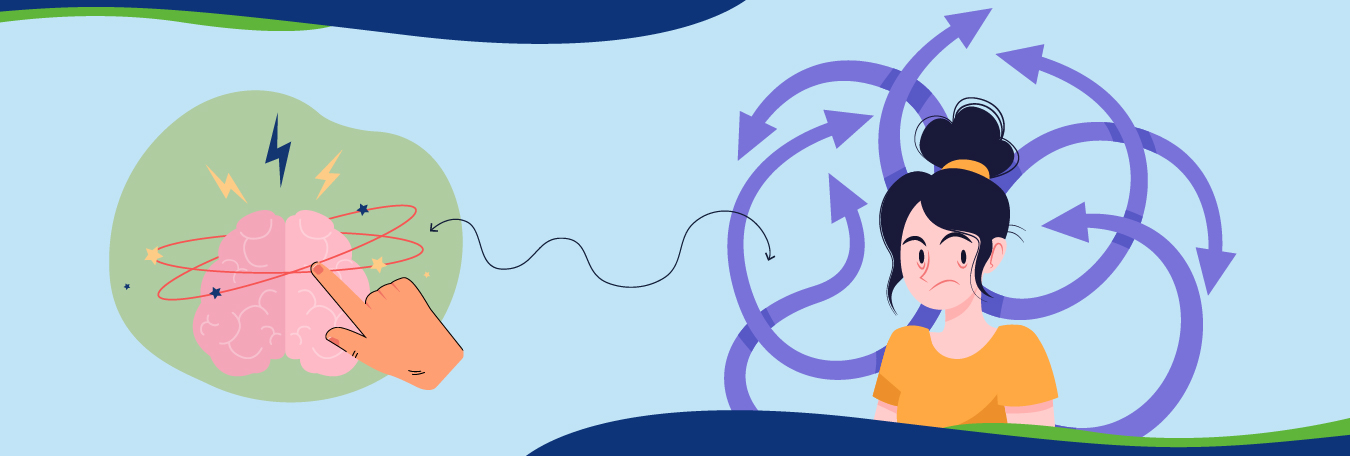There has been a lot of confusion about the pathology of bipolar disorder. Many wrongly believe that bipolar disorder is neurodivergent but we are here to clear that. To do that we are going to discuss the origins of bipolar disorder, define what essentially is neurodivergence, and how the answer to the question of “Is bipolar neurodivergent” is a resounding NO! Let’s do it in the words below:
What is Neurodivergence?
It is a non-medical term that describes people whose brains develop or work differently for some reason. Pathologically, neurodivergent disorders are those conditions that make a person have differences in terms of strengths and struggles from people whose brains develop or work more typically. It’s not a medical term for a reason because it usually describes how the brains of people are affected by conditions like ADHD, autism, and dyslexia. All of these are part of the natural spectrum of human diversity. So, when someone asks, “Is bipolar neurodivergent?”, then the answer is indeed a resounding NO. But why is that, people confuse bipolar for a neurodivergent disorder. To explain this, we are going to start with defining bipolar disorder first.
Many refer to people with variations in brain functioning as being neurodivergent. They may also refer to people whose brains function normally in society as “neurotypical.”
The terms “neurodivergent”, or “neurodivergence” came from the related term “neurodiversity.”, which was coined by an Australian sociologist, Judy Singer in 1998 to recognize that everyone’s brain develops in a unique way and she wanted to give positive connotations to her condition as an autistic woman. She wanted the world to see autistic people not as individuals who have a disability but rather that they have a unique way of viewing and interacting with the world. So, in that way the meaning of this word, if you are asking, “Is bipolar neurodivergent?” is not correlating .
Defining Bipolar Disorder
Bipolar disorder (formerly known as manic-depressive illness or manic depression) is a mood disorder and a mental condition that is characterized by two extreme moods that lie on the opposite sides of a spectrum. These intense shifts in mood cause energy levels to dip and rage, changes in thinking patterns, and impulsive behavior. All of these shifts tend to last for hours, days, weeks, or months and interrupt your ability to carry out day-to-day tasks.
The experience of significant fluctuations in mood shifts is described as hypomanic/manic and depressive episodes. There are also different types at play, and the type of symptoms you are suffering from tends to be totally dependent on the type of symptoms the affected individual is suffering from at the time of diagnosis. The common types of bipolar disorder are I (whose main feature is manic episodes, II, and rapid cycling (excessive rolling of mood s wings).
The manic episodes tend to manifest as:
- abnormally elevated or irritable mood
- extremely high energy
- hyperactivity and being keen on talkativeness
- extreme changes in emotions and thoughts
- hypomania, which is a less severe form of mania and is predominant in bipolar II. It doesn’t last long and doesn’t interfere with daily functioning as much.
The depressive episodes tend to manifest as:
- extreme fatigue
- changes in appetite.
- feelings of worthlessness and hopelessness.
- low or depressed mood
- loss of interest in anything generally
Is Bipolar Disorder Neurodivergent?
A lot of people ask questions like “Is Bipolar Disorder Neurodivergent?”, while we have already said no if it is the detail that you want it is not that simple. Experts do believe that Bipolar disorder (BD) may be a type of neurodivergence condition. Although the exact causes of BD are unclear, it might involve differences in brain functioning and structure. If so, a person with bipolar could identify as neurodivergent based on that criteria. The functional and structural brain differences may be a factor perhaps, which could mean it fits the category of a neurodiverse condition(1).

So in any way, are bipolar people neurodivergent, if the disorder itself is not neurodivergent but many people who are suffering from BD are essentially neurodivergent because of a different mental condition altogether that might be there as a comorbid condition, for example, bipolar is frequently seen in people with autism(2).
So, Now That You Know The Answer To, “Is Bipolar Neurodivergent?”,
Shouldn’t Bipolar be Treated?
Even neurodivergent conditions need treatment. And this one is a chronic mood disorder. Treatment methods like psychotherapy or suitable medication can essentially help in treating disorders such as bipolar. An effective treatment plan usually involves a combination of medication and psychotherapy, also called talk therapy as bipolar disorder is a lifelong illness. In terms of medication, specific mood stabilizers such as lithium or second-generation antipsychotics and antidepressants such as the ones called selective serotonin reuptake inhibitors are used. Psychotherapies such as Cognitive behavioral therapy (CBT) or Dialectical behavioral therapy (DBT) can be used for bipolar or neurodivergent disorders to get rid of emotional dysregulation and enhance executive functioning.
Conclusion
We have essentially discussed everything about the bipolar neurodivergent debate both individually and separately. If what you are asking is bipolar neurodivergent, then as we have mentioned a couple of times before, no it’s not but sometimes it can be diagnosed in parallel to disorders such as autism, which is why people ask a lot of questions such as “Is bipolar a neurological disorder?”, “Is bipolar disorder neurodivergent?”, “Are bipolar people neurodivergent?”, or “Is bipolar considered neurodivergent”. If it is the treatment that you are looking for then we look forward to you coming to the Inland Empire Behavioral Group to treat bipolar or other mental conditions such as depression, anxiety, or psychosis through treatment methods like psychotherapy, medication, or telehealth psychiatry.




